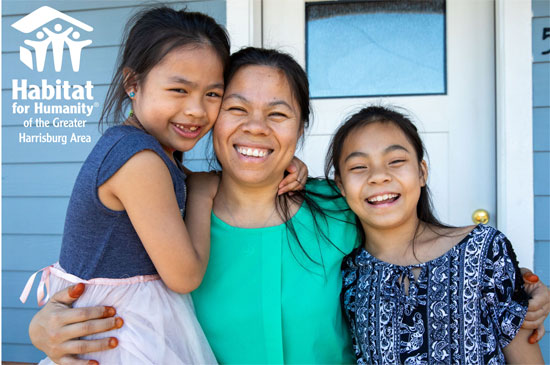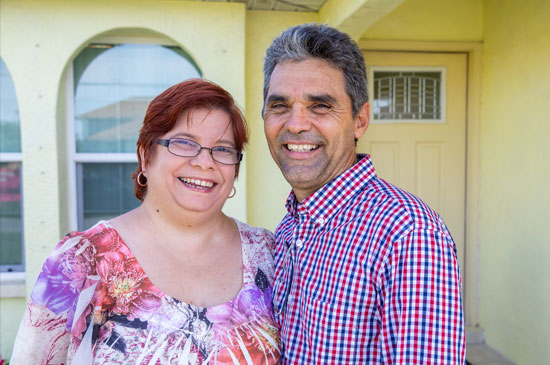HOMEOWNERSHIP PROGRAM
****** DUE TO THE LARGE VOLUME OF INTEREST, THIS PROGRAM IS TEMPORARILY CLOSED*******
Harrisburg Habitat partners with local families in need to provide decent, affordable home ownership opportunities. The home buyers contribute over 75 hours of sweat equity into the building of their homes. After the owner has completed the necessary steps, the home will be sold to the family with affordable monthly mortgage payments.
Please note that Habitat builds are dependent on funding and land development opportunities and we are unable to accommodate requests to build in specific areas.*

Habitat homeownership may be right for you if you are ready to do the following:
- Invest 75-150 sweat equity hours into your Habitat home as well as other Habitat homes.
- Partner with Habitat through the entirety of your home build.
- Commit to a 20-30-year legal obligation for a mortgage.
- Make on time monthly payments towards your mortgage.
- Handle other legal responsibilities involved with owning the home, such as paying insurance and real estate taxes.
- Pay for all utilities including; electricity, gas, water & sewer and any other services.
- Assume responsibility for repair work on your home to prevent future problems.
If you said yes to all of the items above, then you are ready for the cost and excitement that come with home ownership, then you may be ready for a Habitat Home!
PRELIMINARY QUALIFICATIONS


Ability to Pay Criteria:
- Must have a sustainable income. The income may include:
- Earned wages, SSI, disability, retirement or pension
- Must have a consistent history of rental payments.
- Low debt to income ratio.
- Must be a US citizen or permanent resident.
- Must live or work in the Dauphin County.
Need for Housing Criteria:
- Paying more than 30% of income for housing expenses.
- Overcrowded living conditions.
- Substandard living conditions:
- Poor physical condition of home
- Absentee landlord
- Unsafe environment.
Willingness to Partner Criteria:
- Must return application complete and on time.
- Must return phone calls promptly and have constant communication with the Habitat office.
- Must complete 75-150 hours of Sweat Equity.
- Must attend a homeowners workshop.
- Applicant is not found as a listed sex or violent offender on the PA State Police Website.
General Questions & Answers
If you would like to sign up to learn about how to become a Habitat for Humanity Homeowner, please click the link below to complete our inquiry form, and we will contact you via email when workshops are open again.
Foreclosure Questions & Answers

Equal Housing Opportunity:
We are Pledged to the letter and spirit of U.S. policy for the achievement of equal housing opportunity throughout the nation. We encourage and support an affirmative advertising and marketing program in which there are no barriers to obtaining housing because of race, color, religion, sex, handicap, familial status, national origin, or an other basis as required by law.
If you have additional questions regarding Habitat homeownership, please contact our Family Services Coordinator at (717)545-7299 x202 or acardillo@harrisburghabitat.org
